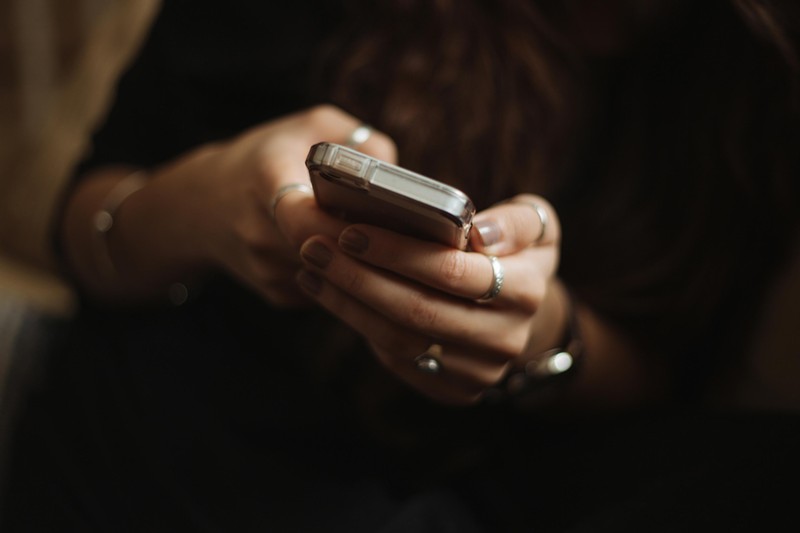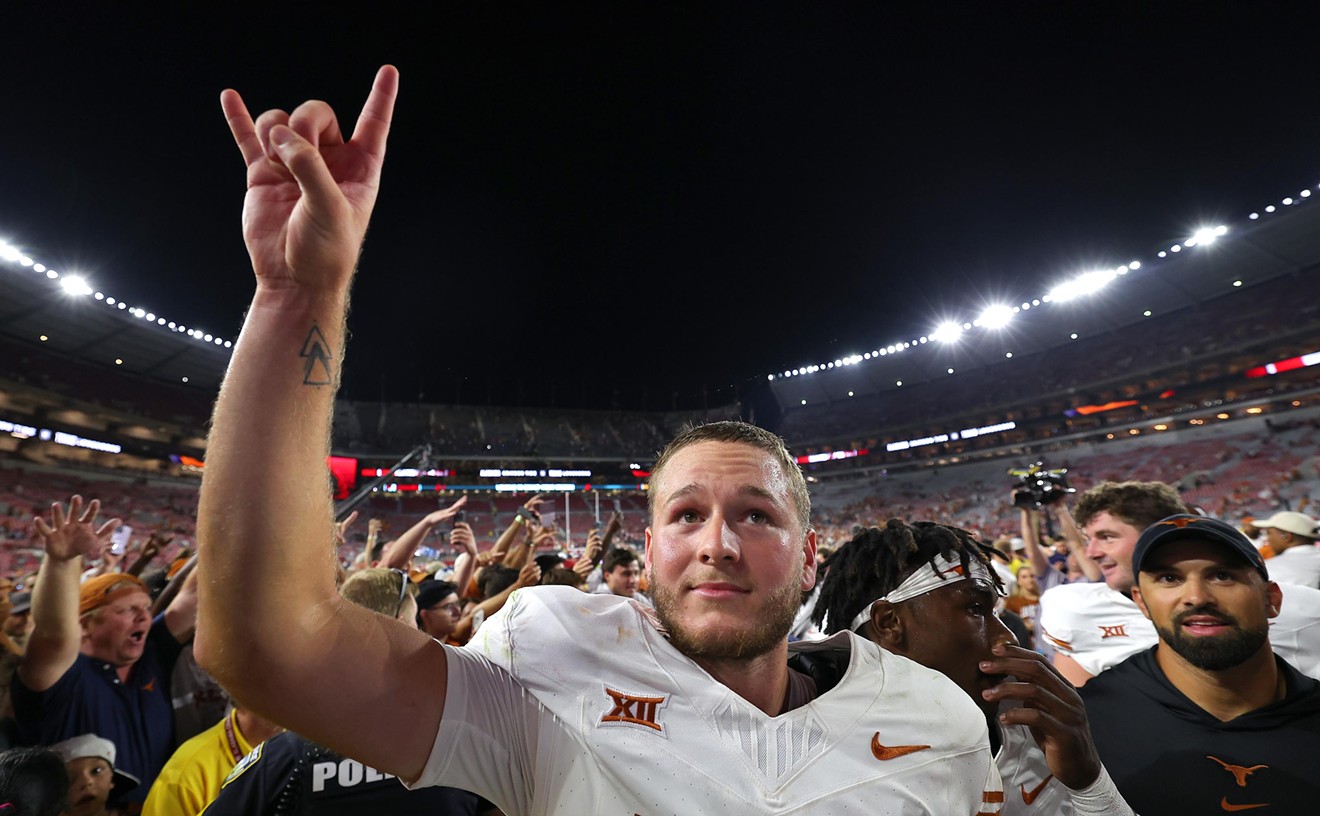For the upcoming academic year, schools such as Richardson High School and Dallas ISD's Bryan Adams High School Leadership Academy are instructing students to lock up their phones during the school day in secure pouches.
“Cellphones are an important tool for all of us,” said Richardson ISD Superintendent Tabitha Branum. “But during the school day, our students need to be engaged in teaching and learning.”
A company called Yondr makes the pouches, which have been used at various North Texas schools the past two school years. They are the same pouches used at some comedy shows, like John Mulaney and Dave Chappelle, to keep the jokes from escaping to the internet.
Richardson ISD aims to increase instructional engagement, face-to-face interaction, academic success and teacher retention, while decreasing social media distractions and student conflict. The district is adding Berkner High School, Pearce High School and Richardson High School to the list of five schools that used Yondr last year.
Texas schools’ implementation of Yondr pouches exemplifies a nationwide issue. Some 72% of high-school teachers say that cellphone distraction is a major problem in their classroom, according to Pew Research Center.
The Proliferation of Yondr Pouches
Districts around the nation are cracking down on phone usage. Florida passed a law in May 2023 prohibiting cellphone use during class time and blocking social media on district-provided internet services. New York City, with the country’s largest school system, is considering a ban on cell phones. Richardson ISD and Dallas ISD already have cellphone-free policies, but enforcing those policies can be a challenge. Pew Research Center data indicates that in schools with an established cellphone policy, 60% of high-school teachers say it is very or somewhat difficult to enforce the policies.
“To ensure that all 250 [teachers] are implementing a set of guidelines exactly the same is really difficult,” Branum said at a June school board meeting. One teacher might say you can take out your phone in the last ten minutes, while another prohibits it.
“You pit teacher against teacher. You pit the kid against the teacher,” she said. “They’re trying to navigate these different sets of expectations. It’s setting our teachers, our assistant principals and our students up for even more confrontation.”
But why not just have students put their phones in a bucket on the teacher’s desk?
Branum says that Yondr ensures consistent implementation. “You can have a great system to try to enforce the policy, but in the end, you are still dealing with a lot of humans,” she said. “Ensuring consistency of implementation is really what will make or break any policy enforcement.”
In Richardson ISD, the experiment began in the 2022–23 school year at Forest Meadow Middle School. Principal Susan Burt credits the Yondr pouches with improving teacher retention and becoming a part of the school’s culture.
“It really has become a part of what we do. It’s just a part of being a Forest Meadow Charger,” Burt said at the June school board meeting.
“You pit teacher against teacher. You pit the kid against the teacher.” – Richardson ISD Superintendent Tabitha Branum
tweet this
Not Everyone Wants the Pouch
Teachers, parents and students have mixed reviews on the Yondr system.One concern is that parents may need to contact their student with important information or in case of an emergency, such as a lockdown or school shooting. There were 349 firearm-related events in 2023 across American schools, breaking the record for the third straight year, according to the K-12 School Shooting Database.
Richardson ISD said that every RISD secondary student is issued a Chromebook that can be used to email parents if they need to communicate during the school day. Parents may also call the school and request a message be delivered to their child during normal school times.
Superintendent Branum said in a 2022 video that “in the event of a school lockdown, our staff will have the ability to unlock the Yondr pouch as soon as it is safe, so students can contact their parents to let them know they are okay.”
RISD also says that law enforcement does not want students on their cellphones during a lockdown, when “students should be focused on staying quiet and out of sight behind a locked door.”
Still, phones can be necessary for calling 911 quickly in emergency situations where a lockdown may not yet be in effect.
An online petition against the Yondr pouches at DISD’s Bryan Adams High School Leadership Academy, which has rocured over 1,700 signatures, highlights the need for “IMMEDIATE” contact with families during emergencies.
Stephanie Oulundsen, whose daughter will be a junior at Lake Highlands High School, said that Yondr implementation was ineffective last year.
“There were absolutely no aspects of the [Y]ondr that worked,” she said. “The kids figured out how to open it the first day. It was nothing but a waste of time and money.”
Students have figured out a variety of ways to skirt the system. They can insert a dummy phone, say they left their phone at home, pretend to close the pouch or bend the pin on the pouch so it will not seal. Some claim that neodymium magnets can open the pouch, as one TikTok appears to show. The magnets are available on Amazon for $19.99.
Oulundsen plans for her daughter to keep her phone. “If the school objects we will put her in private school,” she says.
Another criticism is that the cost of Yondr pouches could be put toward other resources to help students succeed. Richardson ISD will spend about $17 per student on the pouches, according to last year’s board meeting at which the district expanded the program to five schools.
The money comes from the Superintendent Enhancement Fund, according to Branum. This fund is usually used for unexpected costs, like a sports team going to the playoffs.
“This is what [principals] are saying is their priority and how they want those secondary priority funds to be spent,” said Branum. “That’s how committed we are to that.”
A teacher at Richardson High School, who asked that we not use her name, said that phones are a problem but she is not sure that Yondr is the solution.
“I would personally rather teach the high-school students how to use [phones] properly than shut them down completely,” she said. “But I think it’s a great system for junior high students.”
At the June board meeting, Trustee Megan Timme said, “I do not think, as educators, it is our job to teach [students] how to use something we did not give them.”
Richardson ISD is using data to back up its approach. In Yondr-using schools, 89.9% of teachers agree or strongly agree that implementation of the Yondr system has been effective. Most teachers said they got 10 minutes back of instructional time in a 75-minute class period, according to Superintendent Branum.
Discipline has also improved at Yondr campuses. Lake Highlands High School saw a 42% decrease in out-of-school suspension (OSS) and an 8% decrease in in-school suspension. Apollo Junior High School experienced a 74% drop in OSS.
This compliance improvement frees up time for school staff to dedicate to other tasks.
“In our efforts in having a cellphone-free classroom, what it meant on an administrative standpoint, before Yondr, honestly, was just a tremendous amount of time being spent making sure that we were there for our teachers,” helping with phone discipline, said Masud Shamsid-Deen, Assistant Principal at Lake Highlands High School during the June meeting.
It is no surprise that most students want to keep their phones. In Yonder schools, 81% of students disagreed with the measure's implementation.
Few studies have been dedicated to understanding the effect of phone-free policies on students. One study found that anxiety levels increased during phone-free days, as people tend to form such attachment to their phones that separation causes stress. Another saw a decrease of 12–18% in bullying instances when phone-free school days were implemented.
The division between school staff, students and parents has led to some frustration.
“As a teacher, the most frustrating part is the parents who aren’t willing to partner with us and do what’s best for their children,” said a Richardson High School teacher. “Every teacher I know is amazing and hard-working, but it seems like the parents just want to blame us instead of working with us to help their children be successful.”
“Some students will have concerns,” Branum said, “but we are steadfast that this is the right decision to support the growth of our students, both academically and as individuals who are part of a school community.”











